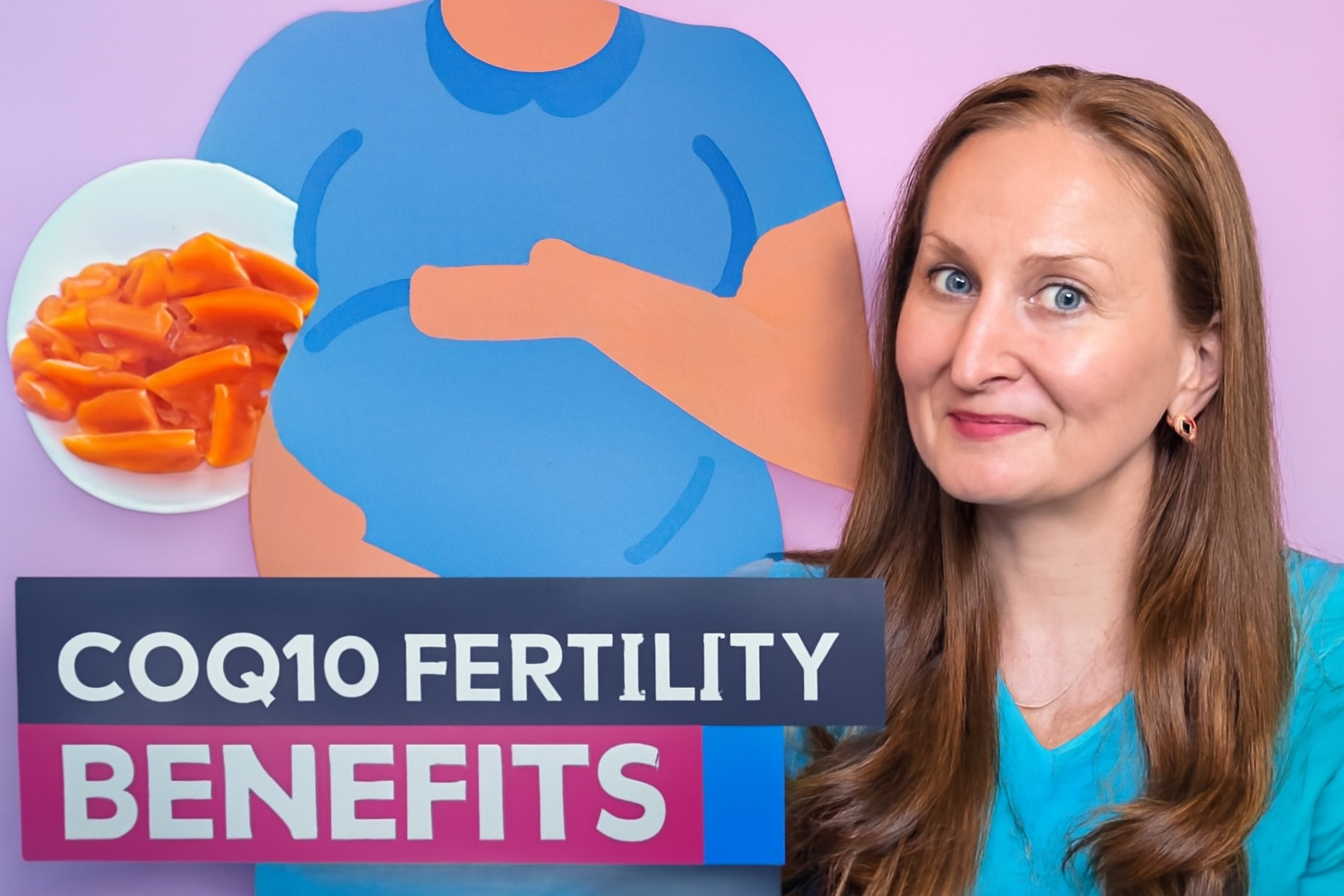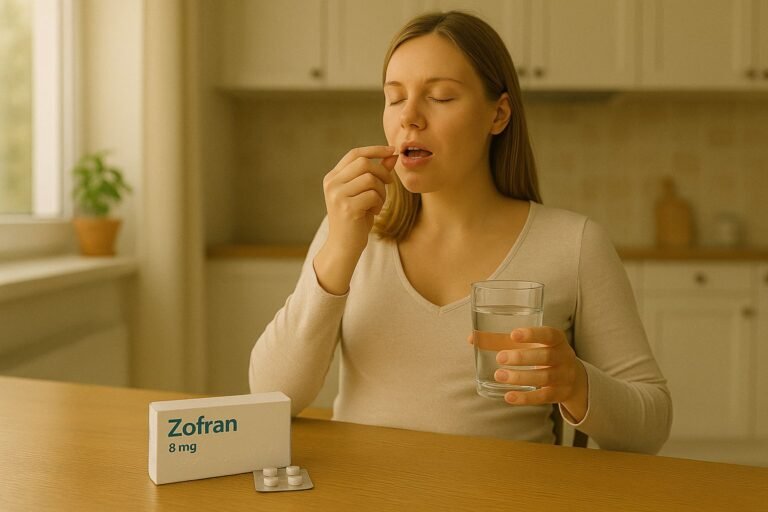Fertility is one of the most delicate aspects of health, influenced by age, hormones, nutrition, and lifestyle. In recent years, one supplement has attracted increasing attention among couples trying to conceive: Coenzyme Q10 (CoQ10). This naturally occurring compound has been linked to improved egg quality, enhanced sperm health, and better reproductive outcomes.
But while there’s plenty of focus on starting CoQ10, many people overlook an equally important question—when to stop taking CoQ10 for fertility. In this guide, we’ll explore what CoQ10 does, why it’s relevant for conception, and the right point in your fertility journey to discontinue it.
Also read: Is Pineapple Safe in Pregnancy? Nutrition, Risks, and Healthy Tips
What is Coenzyme Q10 (CoQ10)?
CoQ10 is a vitamin-like substance present in nearly every cell of the body. Its primary role is to assist the mitochondria—the energy centers of cells—in producing ATP, the fuel that keeps everything functioning. Alongside this, CoQ10 acts as a powerful antioxidant, neutralizing free radicals that damage cells over time.
Unfortunately, CoQ10 levels decline with age. This decrease is particularly significant in terms of reproductive health, as both eggs and sperm rely heavily on mitochondria for energy.
What is CoQ10’s Role in the Body?
Beyond its role in fertility, CoQ10 plays a significant part in heart health, metabolic function, and even skin vitality. It ensures that cells operate efficiently and that oxidative stress does not overwhelm delicate tissues. In the context of reproduction, this means better support for egg development in women and stronger, more motile sperm in men.
What Foods Contain CoQ10?
Although supplementation is the primary source used in fertility treatments, certain foods also provide small amounts of CoQ10. Fatty fish, such as salmon and tuna, and organ meats like liver, as well as whole grains and leafy greens, contribute naturally. While these foods are beneficial, they typically don’t provide sufficient CoQ10 to achieve the levels studied in fertility research, which is why supplements are often recommended.
Benefits of CoQ10 for Fertility
The connection between CoQ10 and fertility has been studied extensively. The primary focus is on how it helps counteract the age-related decline in reproductive potential.
For men, CoQ10 appears to improve sperm count, motility, and morphology, while reducing DNA fragmentation. This not only increases the chances of conception but also enhances the likelihood of healthy embryo development.
For women, the benefits are even more striking. As eggs age, their mitochondrial energy production weakens and oxidative damage increases, making conception more challenging. CoQ10 helps restore some of this lost energy and provides antioxidant protection, giving eggs a better chance of successful fertilization. This is particularly important for women over 35 or those undergoing IVF.
CoQ10 Bioavailability
Not all CoQ10 supplements are created equal. The compound exists in two forms: ubiquinone and ubiquinol. While both are effective, ubiquinol tends to be absorbed more easily by the body, making it a preferred option for fertility purposes. Pairing CoQ10 with healthy fats also improves its absorption.
How Much CoQ10 is Beneficial for Fertility?
The amount of CoQ10 recommended varies depending on individual circumstances. Most fertility specialists recommend a daily intake of between 200 and 600 milligrams, often divided into smaller doses. Since egg and sperm development take around three months, starting supplementation well in advance of conception efforts is ideal. Higher doses may be suggested for women over 35 or for couples pursuing IVF, but this should always be guided by medical advice.
Are CoQ10 Supplements Safe?
For most people, CoQ10 is considered a safe supplement. Side effects are rare and usually mild, with some reporting digestive upset or headaches. However, individuals on certain medications, particularly blood thinners or chemotherapy drugs, should consult their doctor before starting.
When Should I Start Taking CoQ10?
The general recommendation is to begin supplementation three to six months before trying to conceive. This timeframe allows eggs and sperm to mature fully. Starting earlier may provide additional protection against age-related fertility decline, but consistency is more important than exact timing.
Do Men Need to Take CoQ10 Before Trying to Conceive, Too?
Absolutely. Male fertility contributes to about half of infertility cases, and CoQ10 supplementation has shown measurable improvements in sperm health. Taking it in the months leading up to conception can support more potent, healthier sperm, increasing the likelihood of successful pregnancy outcomes.
When Should I Stop Taking CoQ10 for Fertility?
This is the central question for anyone considering CoQ10 supplementation. The consensus among fertility specialists is that CoQ10 should be stopped once pregnancy is confirmed.
Here’s why:
- CoQ10’s primary benefit lies in supporting the quality of eggs and sperm before conception. Once fertilization occurs, other nutrients—such as folate, DHA, and iron—take precedence in supporting fetal development.
- While CoQ10 is considered safe, large clinical trials on its long-term use during pregnancy are limited; therefore, most doctors prefer caution.
- There may be exceptions in some instances, such as women at risk for complications like preeclampsia, but a healthcare provider should always guide this decision.
In short, if you’re wondering when to stop taking CoQ10 for fertility, the answer is: usually after a positive pregnancy test, unless your doctor recommends continuing.
CoQ10 in Fertility Support Supplements
Today, many fertility-focused supplement blends include CoQ10, alongside other nutrients such as folate, vitamin D, and omega-3 fatty acids. This holistic approach ensures not just energy production and antioxidant protection, but also better hormonal balance and reproductive support.
Also read: Zofran for Morning Sickness: Is It Safe in Pregnancy?
Final Thoughts
CoQ10 has proven to be one of the most promising supplements for supporting fertility, particularly for couples dealing with age-related challenges. Its ability to restore mitochondrial energy and fight oxidative stress makes it invaluable in the months leading up to conception.
Still, the question of when to stop taking CoQ10 for fertility is crucial. The majority of evidence suggests stopping after pregnancy is confirmed and switching to a high-quality prenatal vitamin for ongoing support. Every fertility journey is unique, and personalized medical advice is essential, but for many, CoQ10 serves as a powerful starting point on the path to parenthood.




